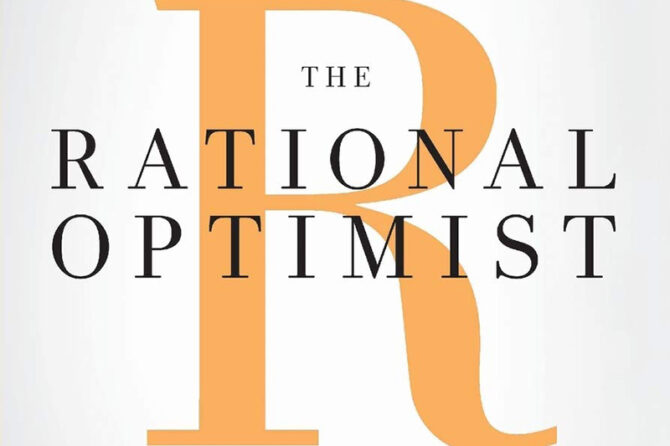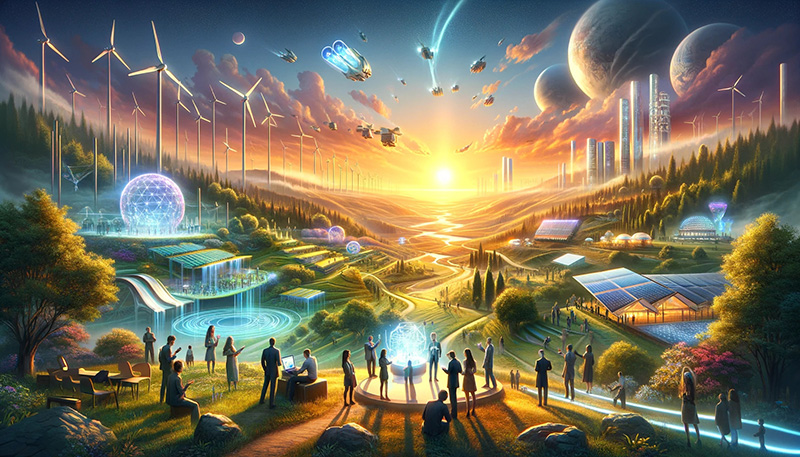
Another author who never ceases to amaze me with his prolific writing is Matt Riddley. Matt Ridley’s “The Rational Optimist” serves as a beacon of hope in a sea of modern-day skepticism, presenting a compelling argument for the inherent progressiveness of human history and the potential for future advancement. Ridley challenges the prevailing narrative of pessimism, advocating for a perspective of hopeful realism that recognizes the vast improvements in human well-being over the centuries. This book review delves into Ridley’s thesis, exploring the key insights, themes, and the balance between optimism and the acknowledgment of ongoing challenges. Here are the key insights and themes from the book:
Human Progress and Its Benefits
Ridley sets the tone early on with an assertion that encapsulates his thesis: “The world is as good a place to live as it has ever been for the average human being.” He meticulously argues that our species has seen a dramatic improvement in living conditions, health, and societal kindness, suggesting that human progress, though complex, is overwhelmingly positive. Ridley’s narrative is built on the foundation that progress is not merely a series of fortunate events but a testament to human resilience and ingenuity.
The Inevitability of Innovation
A central pillar of Ridley’s argument is the constant drive for innovation. He describes innovation as an unstoppable force, propelled by human curiosity, the desire to improve, and the serendipity of mistakes turning into advancements. Ridley’s optimism is rooted in the belief that as long as people continue to tweak, test, and transfer ideas, progress is inevitable.
Innovation Networks
Ridley highlights the importance of social learning and the exchange of ideas as the engine of human progress. He posits, “Human beings learn skills from each other by copying prestigious individuals, and they innovate by making mistakes that are very occasionally improvements – that is how culture evolves.” This perspective underscores the collective nature of innovation, where individual contributions are woven into the fabric of societal advancement.

Co-evolution of Rules and Tools
The book delves into the symbiotic relationship between societal norms and technological advancements. Ridley argues that the specialization and exchange that characterize human societies are not just beneficial but essential for innovation. This co-evolution of rules and tools showcases the dynamic interplay between our social structures and technological progress.
The Role of Energy
Addressing the often-cited concern of energy scarcity, Ridley counters with optimism, stating, “Energy isn’t the problem. Energy is the solution.” He presents a historical perspective on how humans have continually found new ways to harness energy, propelling us forward and suggesting a future where energy innovation continues to solve our greatest challenges.
The Nature of Technological Change
Ridley acknowledges the dual nature of human attitudes towards technological change: we simultaneously embrace it for its benefits and resist it out of fear of the unknown. This nuanced view adds depth to his optimism, recognizing the complexities of human nature in the face of progress.
The Inexhaustible Potential of Knowledge
One of the most inspiring themes in Ridley’s work is the limitless nature of human knowledge and innovation. He challenges the pessimistic narrative with a simple yet profound question: “Yet if innovation is limitless, why is everybody so pessimistic about the future?” Ridley’s belief in the boundless potential of human creativity and problem-solving is a cornerstone of his optimistic outlook.
Human Nature and Progress Perception
Ridley explores how our evolutionary predispositions towards ambition and desire can sometimes overshadow our ability to appreciate the progress we’ve made. This insight into human psychology offers an explanation for why, despite significant advancements, societies may still perceive themselves as lacking.
Historical Patterns and Future Optimism
Ultimately, Ridley encourages readers to adopt an optimistic view of the future, grounded in a historical understanding of human progress. He sees history not as a cycle of despair but as a spiral of potential, where human society has the capacity to continue its upward trajectory, despite the challenges that lie ahead.
Ridley’s work is a meticulously researched and eloquently argued case for optimism, supported by a wealth of historical data and contemporary examples. However, it is not without its critics, who argue that Ridley’s optimistic lens may gloss over the gravity of current global challenges, such as climate change, inequality, and political instability. While Ridley’s faith in human innovation is compelling, there is a counterargument that emphasizes the need for systemic changes beyond individual innovation to address these global issues comprehensively.
“The Rational Optimist” is a seminal work that challenges the prevailing pessimism of our times, offering a well-reasoned argument for embracing a hopeful outlook on the future. Ridley’s work is a reminder of the human capacity to overcome challenges through innovation and collaboration, urging readers to dare to be optimistic. While acknowledging the real challenges that lie ahead, Ridley’s message is clear: human history is a testament to our ability to progress, and there is every reason to believe this trajectory can continue.
For those intrigued by Ridley’s perspective and looking to explore further, “Enlightenment Now“ by Steven Pinker offers a complementary analysis of human progress through the lens of enlightenment principles. Conversely, “Homo Deus” by Yuval Noah Harari presents a forward-looking exploration of future challenges and possibilities, providing a broader context to Ridley’s optimism. Together, these works offer a comprehensive view of human progress, its drivers, and the potential paths forward.
Prof. Dr. Prahlada N. B
14 February 2024
Chitradurga.

















True Prahlada Sir ,
Ridley's thesis is rooted in the belief that through trade, specialization, and technological innovation, human societies have consistently improved their standard of living despite challenges and setbacks along the way. He contends that such progress is driven by the collective intelligence and ingenuity of people, and he makes a case for embracing an optimistic outlook based on these trends.
Overall, "The Rational Optimist" offers a perspective that challenges pessimistic views about the world's future and invites readers to consider the potential for ongoing positive change.
It is interesting to note that 'The Rational Optimist' is a 2010 popular science book by Matt Ridley, author of The Red Queen: Sex and the Evolution of Human Nature….
Reply